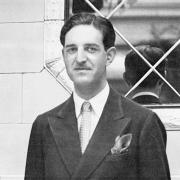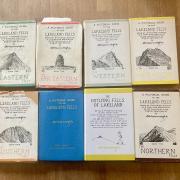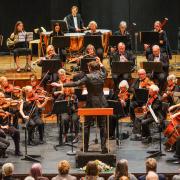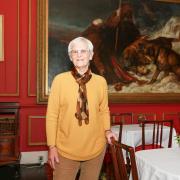The eminent historian Dr Derek J Ripley takes us on trip to darkest Fleetwood - and beyond
Forgotten Lancashire and Parts of Cheshire and the Wirral is by Dr Derek J Ripley. To purchase a copy go to www.forgottenlancashire.co.uk.
On Twelfth Night, when traditionally we discard our Christmas decorations and annual resolutions to stop smoking, eat less and tidy the shed, it seems that our every conversation is dominated by the subject of glamorous destinations for the summer holiday. Bombarded by TV advertising, we are bludgeoned into booking trips to foreign destinations or even ‘adventure holidays’.
These are not for me. Particularly in these times of austerity, I am a firm advocate of the staycation. I like to encourage people to holiday here in the north west rather than spending their hard-earned cash in far off places, however beguiling it may seem to venture to Harrogate or even Shrewsbury.
I am currently working on a visitor’s guide to Lancashire and the Lakes and, having finally reached F, my suggestion is that readers experience afresh the charms of the sleepy fishing village of Fleetwood. Wandering through the back lanes and alleys, visitors happen upon many treats. The sweet aroma of confectionery hovers as in most homes ‘out-workers’ bubble up pans of sugar and secret ingredients including cayenne peppers, Vindaloo curry powder and jalapeno chilli oil. Tipped into communal vats, these are later processed into the town’s favourite confection, Pescatorean Pals.
Nowadays, we are more than likely to book our holidays via the internet - but have you ever stopped to think how our forefathers managed? Often with just a fortnight off in the whole year and with only the pull-out travel section of the Bolton Courier to guide them, they naturally turned instead to their local travel agent. One such was Thomas Blunt, who set up business in 1905 in rented premises on Mintball Square in Wigan, initially offering sight-seeing tours to neighbouring towns such as Aspull and Ince.
His conducted tours of towns close to Wigan were initially very popular with locals, but Thomas learnt the hard way that tastes can be fickle. He soon found that he was losing customers to rival companies organising excursions to more exotic locations such as Birkdale and Lytham St Annes.
Blunt emerged triumphant, however, when he developed his Grand Tour. This emphasised the health and educational aspects of travel, so families would book their eldest children on to a week-long excursion to Windermere, via Ormskirk, Clayton-le-Moors, Padiham and Garstang.
The Grand Tourists would be encouraged to keep journals and many a Lancashire home was enlivened in the winter months as returning children urged their parents to re-style their homes and gardens after the fashion of, say, Cleveleys or possibly Sabden. Blunt also promoted his Club 1830 holidays, which were a great success with the younger, more rowdy set as they travelled round the county re-enacting the Corn Law riots of the previous century.
The company’s decline began when they organised battlefield tours to northern France, offering the chance to see at first hand the locations of major Great War battles. These were tremendously popular and, at their peak, over 12 railway carriages a day took tourists to the trenches of Passchendaele, Ypres and Fromelles. But Blunt was way ahead of his time and the tours were brought to an abrupt end in 1917, after a number of holidaymakers were mortally wounded.



























